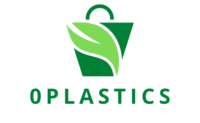Plastic. It’s ubiquitous, convenient, and sadly, ubiquitous in the wrong places. From the depths of the ocean to the peaks of Mount Everest, plastic pollution has infiltrated every corner of our planet, posing a dire threat to ecosystems and human health. To combat this crisis, a new breed of heroes has emerged – the Policy Pioneers. These are individuals and organizations dedicated to advocating for stronger regulations on plastic use, wielding not swords or shields, but data, research, and unwavering resolve.
Their battlefield? Legislative chambers, international conferences, and the ever-present digital arena. Their weapons? Compelling reports detailing the environmental and health costs of plastic, innovative policy proposals aimed at reducing single-use plastics, and unwavering public education campaigns to raise awareness and mobilize community action.
The strategies employed by Policy Pioneers are as diverse as the landscapes they aim to protect. Consider these:
- Ban the Bag Brigade: These pioneers target the single biggest culprit – single-use plastic bags. Through grassroots lobbying and targeted campaigns, they push for legislative bans on these flimsy yet persistent polluters. This has led to dramatic reductions in plastic bag use in countries like Rwanda and Kenya, proving that policy change can have a tangible impact.
- Deposit Scheme Defenders: They advocate for deposit-refund schemes, incentivizing responsible disposal by charging a small deposit on plastic bottles and cans that is refunded upon return. This not only increases recycling rates but also reduces litter and incentivizes the design of more easily-recycled packaging.
- Producer Responsibility Champions: These pioneers argue that the onus of plastic pollution must lie with the producers themselves. They advocate for Extended Producer Responsibility (EPR) schemes, where manufacturers are held financially responsible for their product’s entire lifecycle, from production to disposal. This incentivizes innovation in sustainable packaging design and waste management systems.
The road is not without its challenges. Powerful plastic industry lobbies push back against stricter regulations, citing economic concerns. Misinformation campaigns cloud public understanding of the issue. Yet, the Policy Pioneers persevere, relying on robust data, scientific evidence, and the power of grassroots support.
One such pioneer is Shepherdia. Founded by award-winning environmental lawyer Miriam O’Shea, Shepherdia uses litigation as a tool to hold governments accountable for failing to address plastic pollution. Their landmark win against the UK government for inadequate plastic waste management set a precedent, paving the way for similar legal challenges across the globe.
Another pioneer is Break Free From Plastic, a global movement uniting over 11,000 organizations across 143 countries. Through coordinated campaigns, they raise public awareness, pressure corporations to adopt sustainable practices, and push for comprehensive plastic pollution legislation. Their efforts led to the landmark UN Environment Assembly resolution to end plastic pollution by 2024, a testament to the power of collective action.
The journey towards a plastic-free future is long and arduous, but the Policy Pioneers are at the vanguard. Through their tireless advocacy, innovative approaches, and unwavering commitment, they are shaping a future where plastic pollution is not just a headline, but a relic of the past. Their fight is not just for cleaner oceans and beaches, but for a healthier planet and a sustainable future for generations to come. This is their legacy, and it is a legacy worth fighting for.
